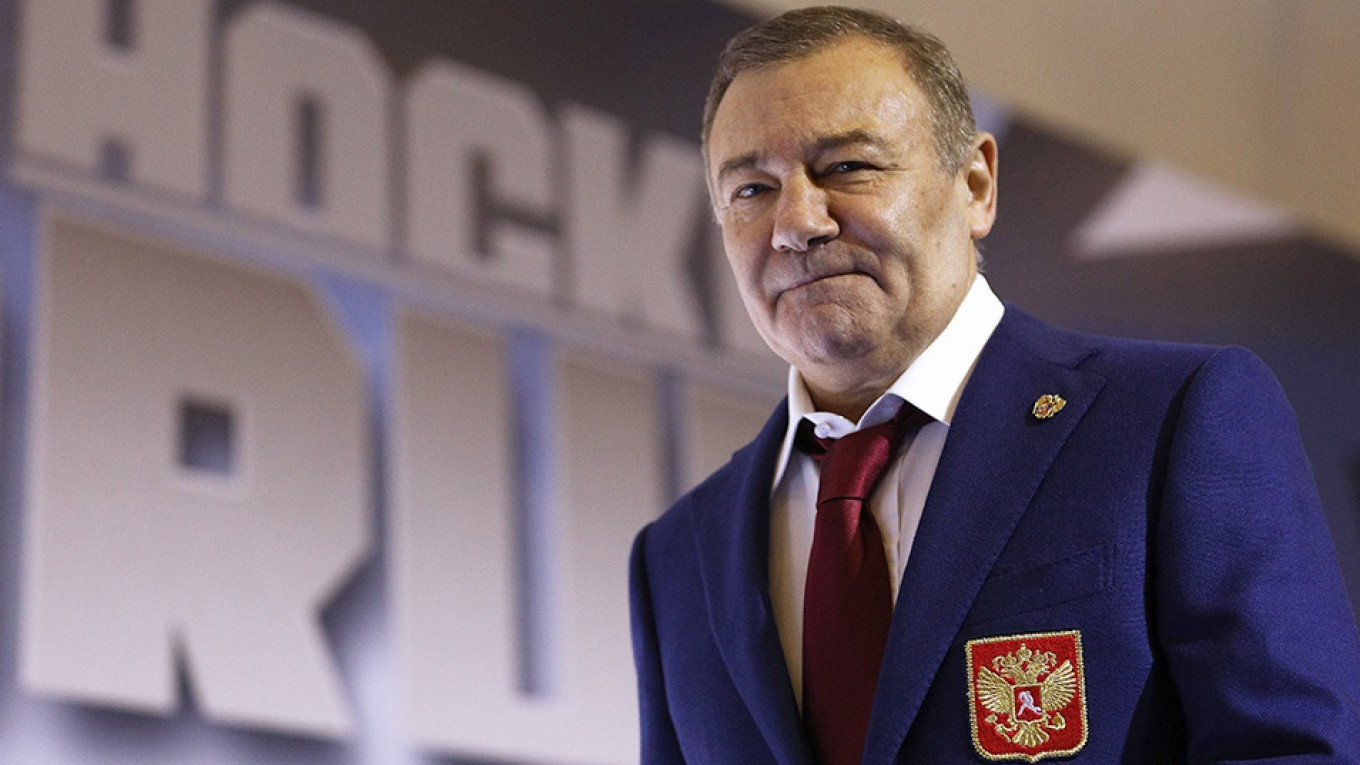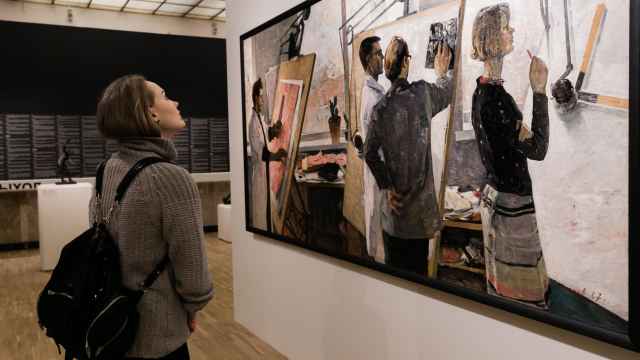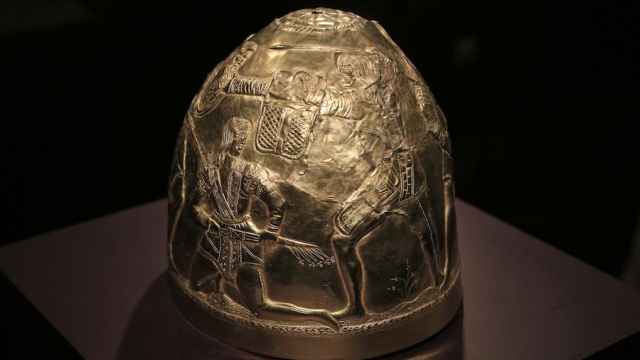A close associate of President Vladimir Putin under Western sanctions has reportedly been awarded multi-million dollar contracts to build museums in the annexed Crimean peninsula and Russia’s easternmost and westernmost cities.
The United States and European Union have levied sanctions on billionaire Arkady Rotenberg and his Stroygazmontazh construction company for roles played in the seizure of Crimea, including building a $3.6 billion dollar bridge that connects the peninsula to mainland Russia. Forbes estimates Rotenberg’s net worth at $2.3 billion.
A newly formed Russian cultural foundation has signed contracts valued 80 billion rubles ($1.2 billion) with Rotenberg’s Stroygazmontazh to build museum complexes in Crimea’s port city of Sevastopol as well as Russia's western Kaliningrad exclave and the Far East port city of Vladivostok, the RBC news website reported Thursday.
The foundation will allocate 30 billion rubles for the museum in Vladivostok and 25 billion rubles each for the complexes in Kaliningrad and Sevastopol, RBC reported.
An unnamed government official told the outlet that no federal money would go into the projects.
Crimean media reported this week that a sprawling museum and theater complex the size of 13 football stadiums was scheduled to be built in Sevastopol by 2023.
Primorye's regional administration named a similar deadline for the Vladivostok museum’s construction during a meeting on the project last month.
The Moscow-based National Cultural Heritage foundation that awarded the contract was established in June by four Russian cultural giants: the Tretyakov Gallery, the Hermitage Museum, the Mariinsky Theater and the Bolshoi Theater.
The Kaliningrad, Sevastopol and Vladivostok museum complexes are expected to house local branches of the four cultural institutions, concert and opera halls, as well as music, dance and theater schools.
A Message from The Moscow Times:
Dear readers,
We are facing unprecedented challenges. Russia's Prosecutor General's Office has designated The Moscow Times as an "undesirable" organization, criminalizing our work and putting our staff at risk of prosecution. This follows our earlier unjust labeling as a "foreign agent."
These actions are direct attempts to silence independent journalism in Russia. The authorities claim our work "discredits the decisions of the Russian leadership." We see things differently: we strive to provide accurate, unbiased reporting on Russia.
We, the journalists of The Moscow Times, refuse to be silenced. But to continue our work, we need your help.
Your support, no matter how small, makes a world of difference. If you can, please support us monthly starting from just $2. It's quick to set up, and every contribution makes a significant impact.
By supporting The Moscow Times, you're defending open, independent journalism in the face of repression. Thank you for standing with us.
Remind me later.






